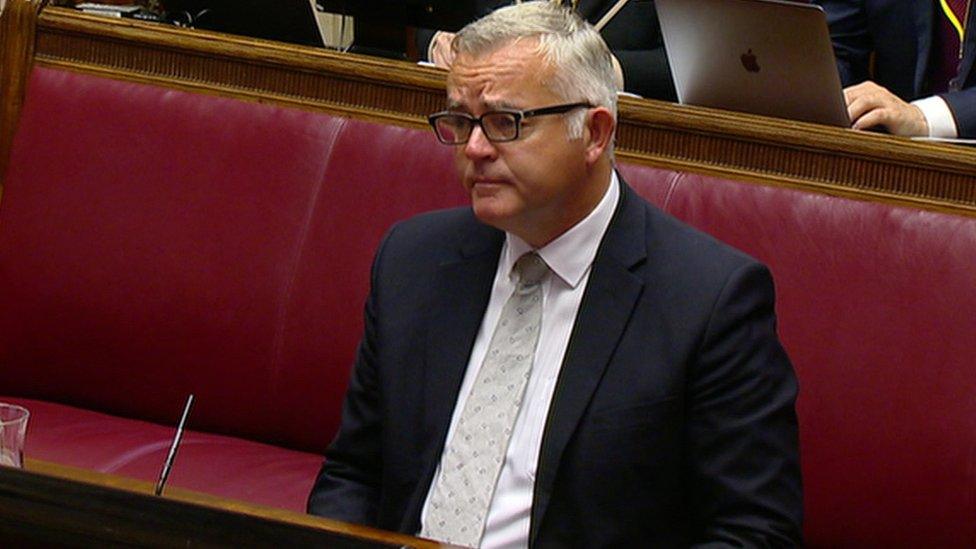RHI Inquiry: Five moments you might have missed
- Published
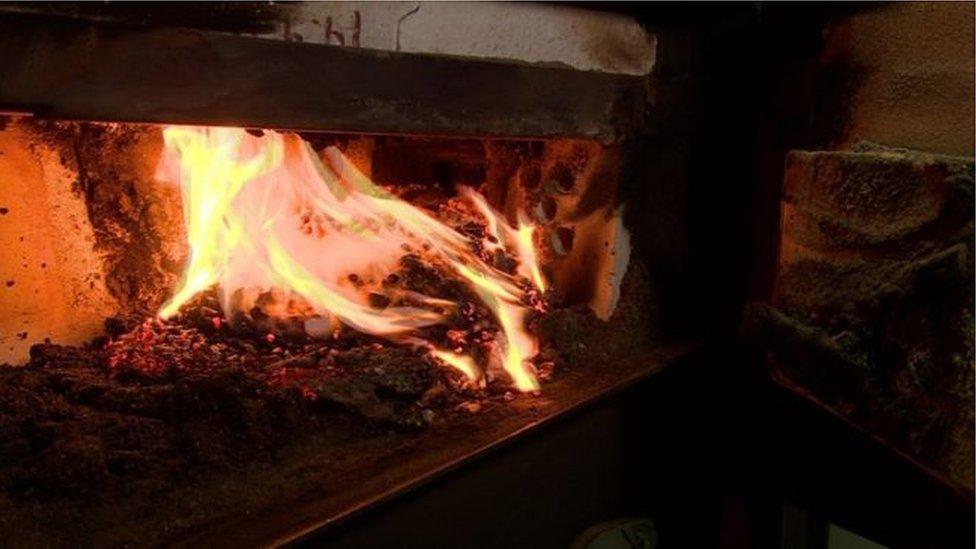
The RHI scheme was established to encourage uptake of eco-friendly heat systems over the use of fossil fuels
The public inquiry into Northern Ireland's flawed green energy scheme has sat for almost 100 days of hearings.
It is examining what went wrong with the Renewable Heat Incentive (RHI) scheme.
This week the evidence was dominated by the DUP, whose ministers were in charge of setting up and closing down the botched project.
BBC News NI has picked out five key moments you might have missed.

1. 'I regret not sacking Jonathan Bell' - Arlene Foster
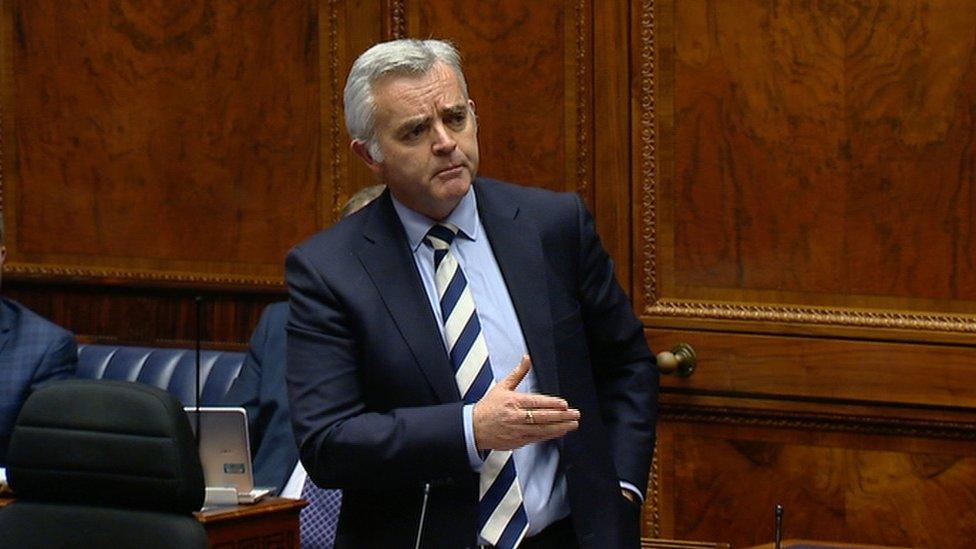
The inquiry has heard claims from a number of witnesses that Jonathan Bell (pictured) was not fit to hold ministerial office
On Tuesday, the inquiry's star witness - DUP leader Arlene Foster - was back for more than seven hours of questioning.
One of the most interesting exchanges occurred when she was asked about Jonathan Bell - he's well known to anyone following the inquiry as he blew the scandal wide open in December 2016, by alleging DUP advisers had stopped him from trying to close the botched scheme.
He had been Mrs Foster's successor as enterprise minister with responsibility for the RHI scheme in May 2015, but a year later after he was replaced in that role by another DUP colleague, Simon Hamilton.
She told the inquiry it was a "great regret" of hers that she hadn't sacked him when she became first minister in January 2016, but said she decided to leave him in post until after the assembly election, which was just three months out.
Mrs Foster also claimed there was a concern he could "go rogue" if he was sacked and was told by others: "How much harm can he do in three months?"

2. ' I'm accountable but not responsible' - Arlene Foster
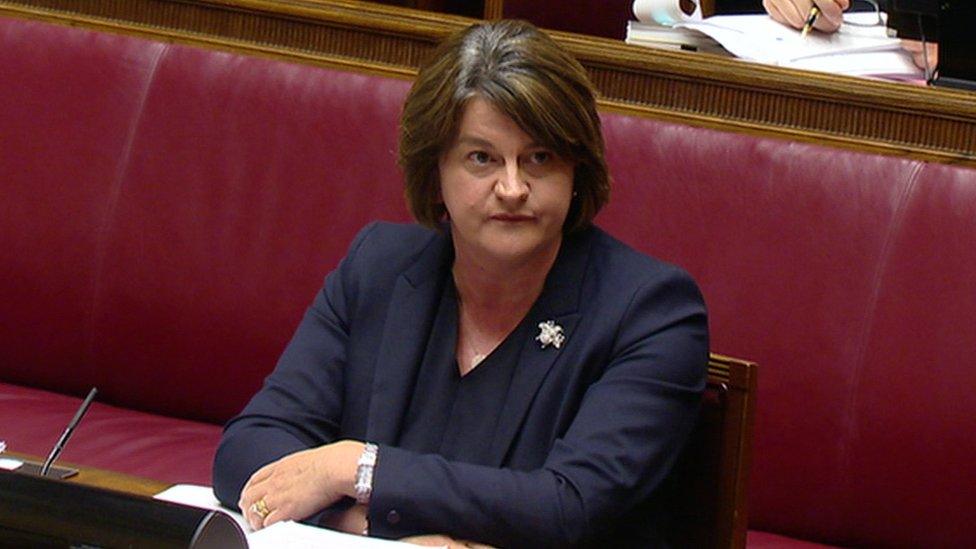
The DUP leader Arlene Foster faced seven hours of questioning by the inquiry panel this week
One of the biggest matters before the inquiry panel is determining the level of responsibility held by various politicians and government officials who had involvement with the scheme.
On Tuesday, Mrs Foster was questioned about the role her adviser, Andrew Crawford, played in the scheme when he was working in the finance department.
The inquiry has also heard he sent confidential government documents to family members who were RHI claimants, which warned them about the plans to introduce cost controls to remove the lucrative subsidies.
Mrs Foster was asked if the panel finds Mr Crawford breached standards, to what degree she holds some responsibility for his actions as his former minister.
She said she was accountable for Mr Crawford's behaviour, as she was for all her departmental officials.
But she said she failed to see how she could "be responsible for that breach", if a special adviser acted outside the rules.
"I'm accountable but I'm not responsible," said the DUP leader.

3. Ex-minister 'told lies' over scheme - John Robinson
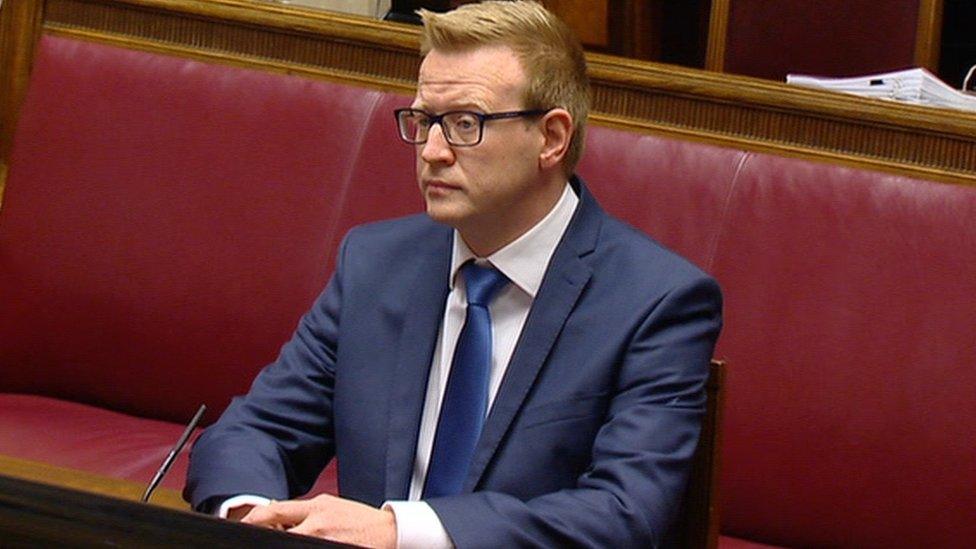
The DUP's head of press John Robinson appeared at the inquiry for the first time on Wednesday morning
On Wednesday, the public got a chance to hear from the DUP's director of press - John Robinson.
He held that role for the best part of 10 years, before being appointed special adviser to Simon Hamilton, who replaced Jonathan Bell as economy minister in May 2016 and took on responsibility for the RHI scheme.
Mr Robinson's name had already made headlines in the energy scandal because in January 2017, Mr Bell named him as one of two DUP advisers who wanted the RHI scheme kept open due to their "extensive interests in the poultry industry".
Mr Robinson flatly denied that claim when the inquiry put it to him: he said Mr Bell had "told lies".
He added when Mr Bell named him, he was "as shocked as anyone" and that it catapulted his family into a media spotlight they did not deserve.
He did however, say he regretted not making his family connection to the ill-fated scheme known sooner - Mr Robinson's father-in-law is a claimant, but he did not make a written declaration of interest when he moved to work on the matter in the economy department.

4. 'I thoroughly regret not stepping back' - Stephen Brimstone
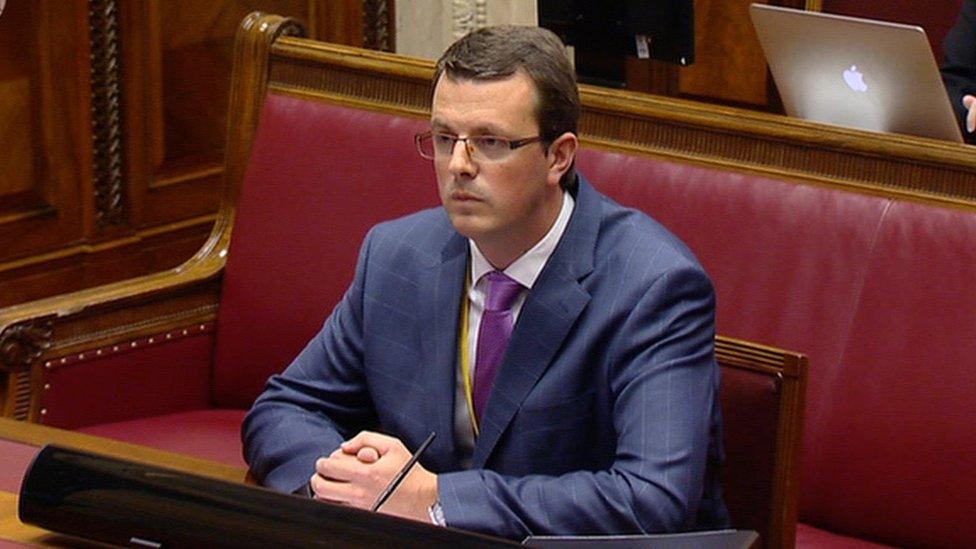
Stephen Brimstone served as a special adviser to several DUP ministers over a period of eight years
On Wednesday, it was also the turn of another former DUP adviser to face the inquiry - this time, Stephen Brimstone, himself a claimant on the scheme.
In August 2015, he applied to the scheme and installed a biomass boiler to heat his shed and his home.
He later went on to work as an adviser to First Minister Peter Robinson, and later his successor, Arlene Foster.
He told the inquiry he "thoroughly regrets" not withdrawing himself from a conversation with two DUP advisers about plans to introduce cost controls to the scheme in summer 2015.
He said he should have stepped back from the discussion and made his colleagues aware that there could have been a "perceived conflict of interest".
"That's what you should have done and you didn't do," said inquiry counsel Joseph Aiken.
"Absolutely," replied Mr Brimstone.

5. 'Claim I delayed RHI cost controls wrong' - Timothy Johnston
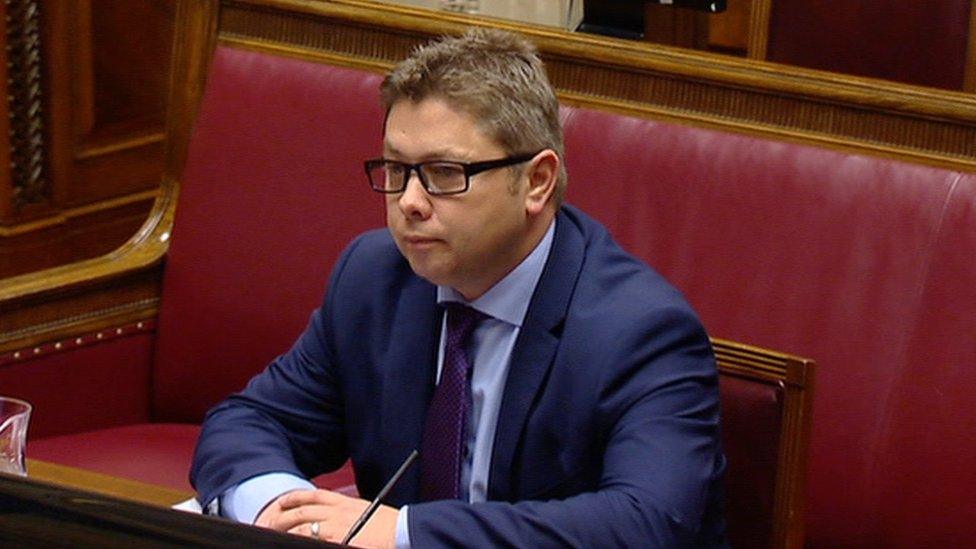
Timothy Johnston served as a top adviser to three Northern Ireland first ministers over a 10-year period
While Timothy Johnston tends to shy away from the public eye, he is recognised as the most senior backroom figure within the DUP - as a former adviser, policy and communications director and now the party's chief executive.
On Friday, he responded to allegations that he had been involved in a decision to delay cost controls to the ill-fated scheme in summer 2015, a decision which ultimately allowed a huge spike in applications that did severe damage to the public purse.
Mr Johnston denied any knowledge of how the delay occurred, and said he never instructed anyone to "delay, soften or reduce" cost controls.
"I am absolutely certain there was no discussion with me about RHI or tariff controls in summer 2015 at all," he told the inquiry.
He said the allegation, which had been made by another DUP adviser, Timothy Cairns, was entirely "wrong" and that he had no interest or awareness of the RHI scheme until much later in 2015.

Next week the inquiry will hear from a number of renewable energy experts and the former chair of Stormont's enterprise committee, the SDLP's Patsy McGlone.
You can keep up-to-date with the latest from the RHI inquiry on BBC News NI's live page.
- Published5 September 2018
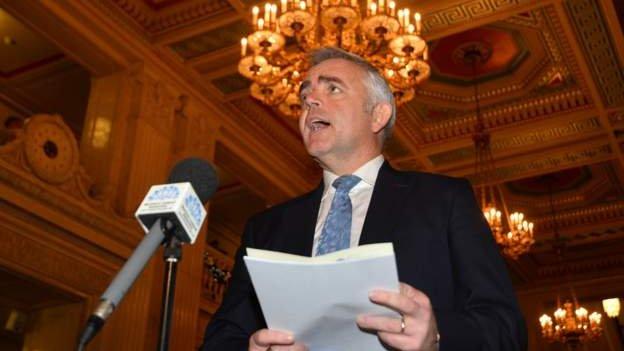
- Published5 September 2018
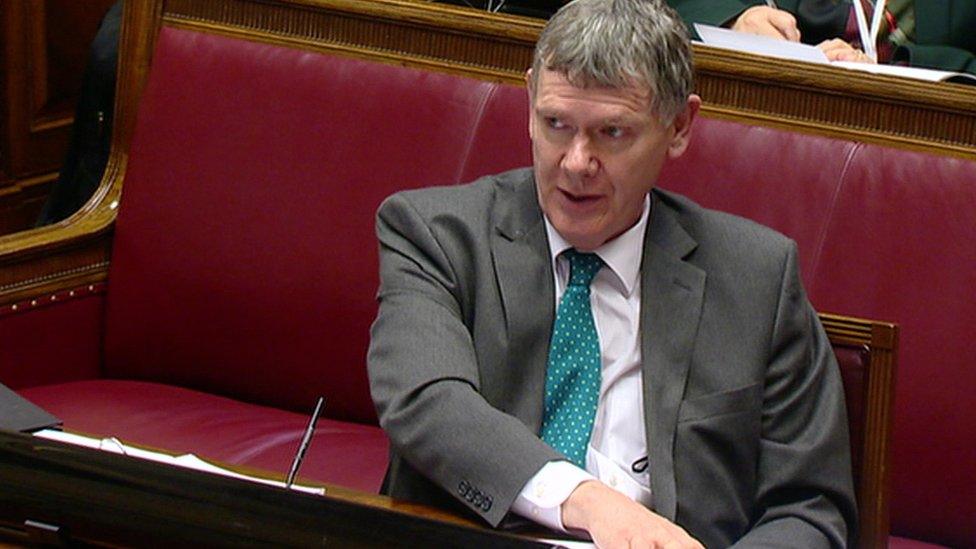
- Published7 September 2018
